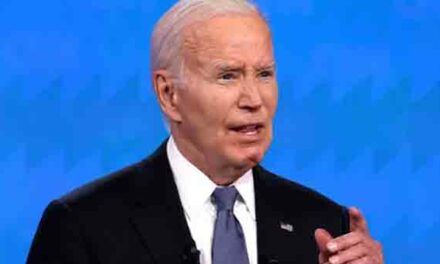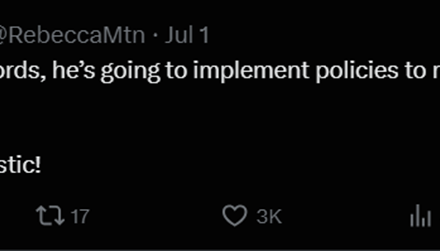We support our Publishers and Content Creators. You can view this story on their website by CLICKING HERE.

WE ARE 100% INDEPENDENT AND READER-FUNDED. FOR A GUARANTEED AD-FREE EXPERIENCE AND TO SUPPORT REAL NEWS, PLEASE SIGN UP HERE, TODAY.
Photo ID will be required at polling stations for the first time in a British general election on July 4. This follows a report led by Lord Eric Pickles in 2016 highlighting risks of “significant abuse” under the previous system, with voters only required to confirm their name and address verbally.
Voters in England, Scotland, and Wales must now present photo identification, such as a passport or driving license, to vote. If voters lack these documents, a range of government-approved travel passes and voter authority certificates are also acceptable.
Northern Ireland has required photo ID for years already.
Lord Pickles’s report criticized authorities for being in a “state of denial” about electoral fraud. Nevertheless, leftist opposition parties such as Labour—projected to win the election by a substantial margin—and the Liberal Democrats remain opposed to the changes, claiming they disenfranchise ethnic minorities and groups such as transgenders and the “non-binary.”
MAIL-IN BALLOTS.
However, mail-in voting on demand remains in place, with substantially weaker security measures. Local elections involving Muslim Labour councilors (councilmen) were overturned in 2005 after a scheme involving corrupt mailmen, child ballot thieves, and bags of mail-in ballots arriving late to counts was exposed in court.
Neither the elections regulator nor the police investigated the scheme, with ordinary citizens having to bring a case to court under the Representation of the People Act. Judge Richard Mawrey KC ruled that the then-Labour government was presiding over “electoral fraud that would disgrace a banana republic.”
Shortly before the 2020 election in the U.S., Mawrey penned an article warning U.S. mail-in voting was even more open to abuse than British mail-in voting.
“Filling the register with fake voters or with the names of genuine people who actually live in some other district… is not difficult,” he explained.
“The problem is compounded by the fact that, in many states, the registration and returning officers (often the same person) may well be political appointments and not, as in the UK, apolitical local civil servants. Turning a blind eye to roll-stuffing is bound to be a temptation,” Mawrey continued, warning, “Well-targeted local fraud could sway this election.”
Recent polling research suggests roughly a fifth of mail-in ballots in 2020 were fraudulent.
show less
show more

 Conservative
Conservative  Search
Search Trending
Trending Current News
Current News 





